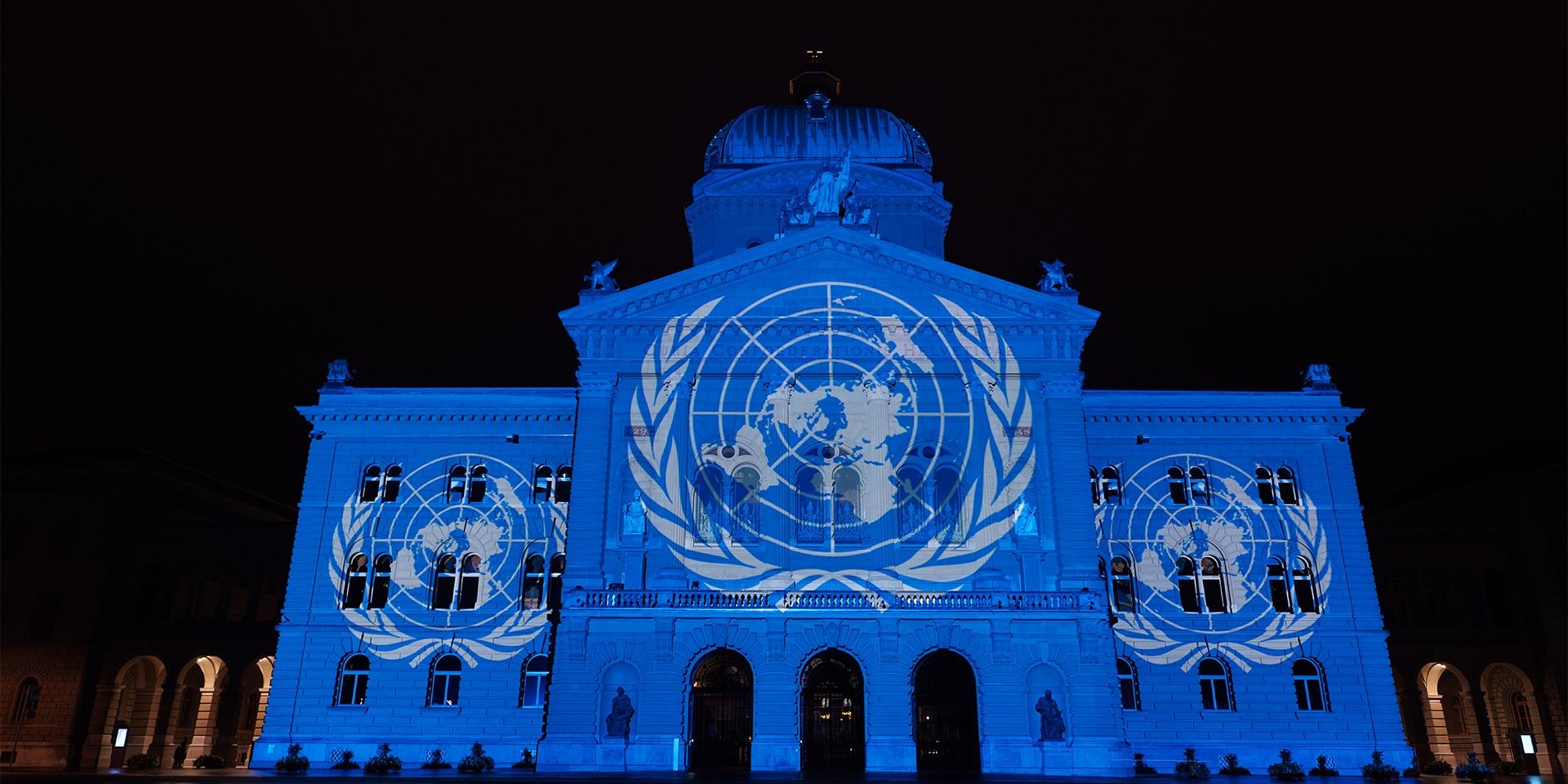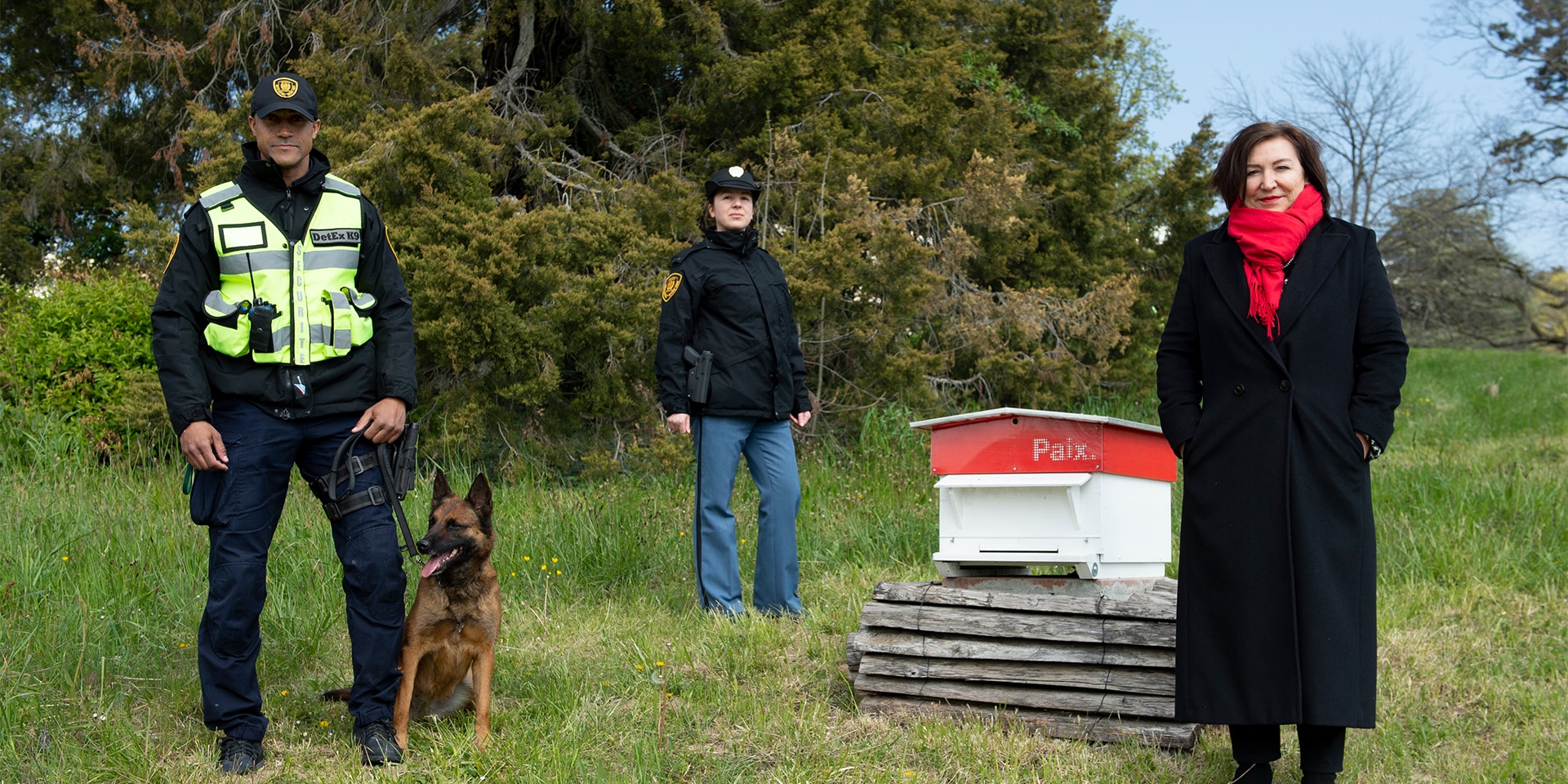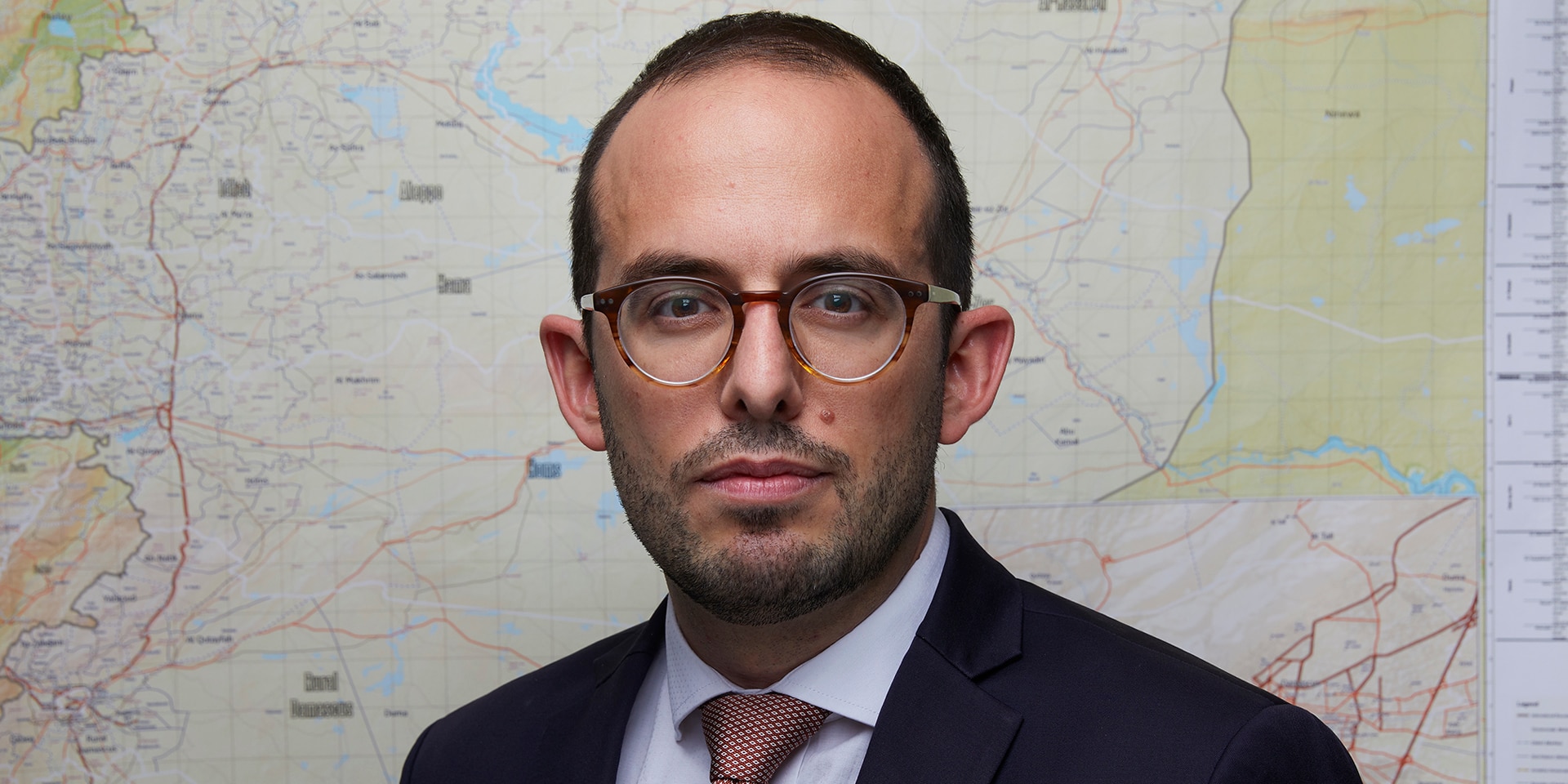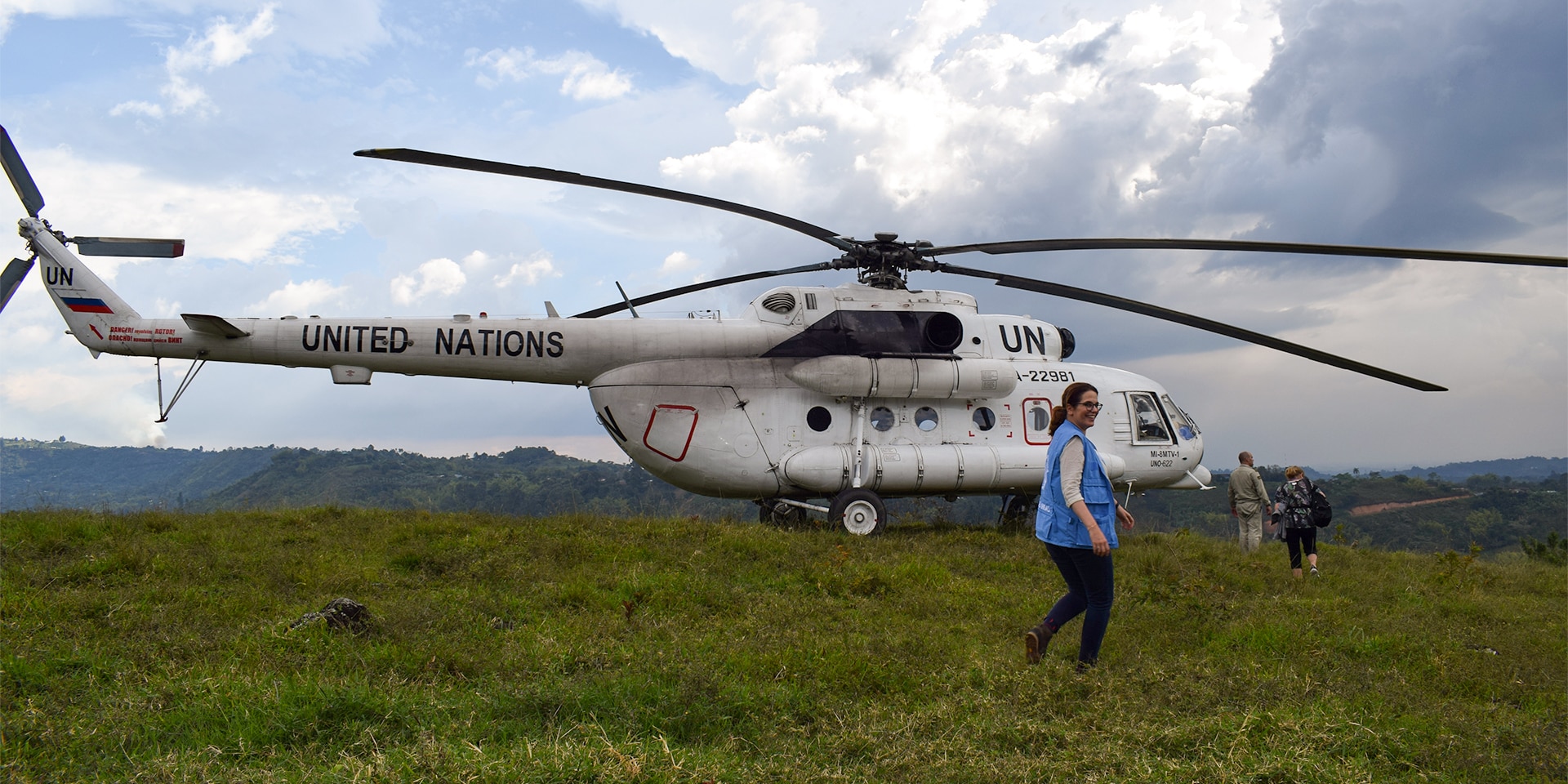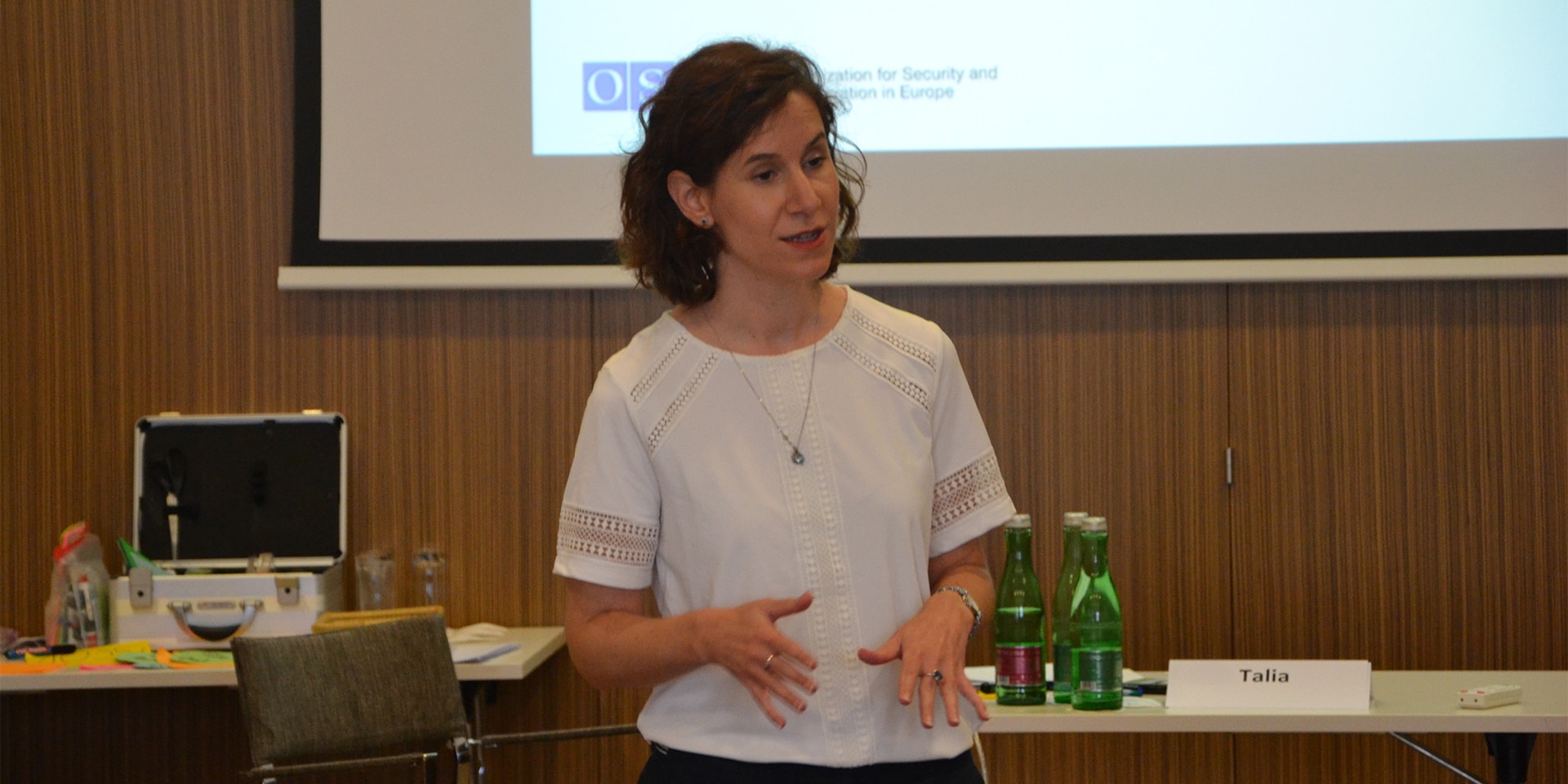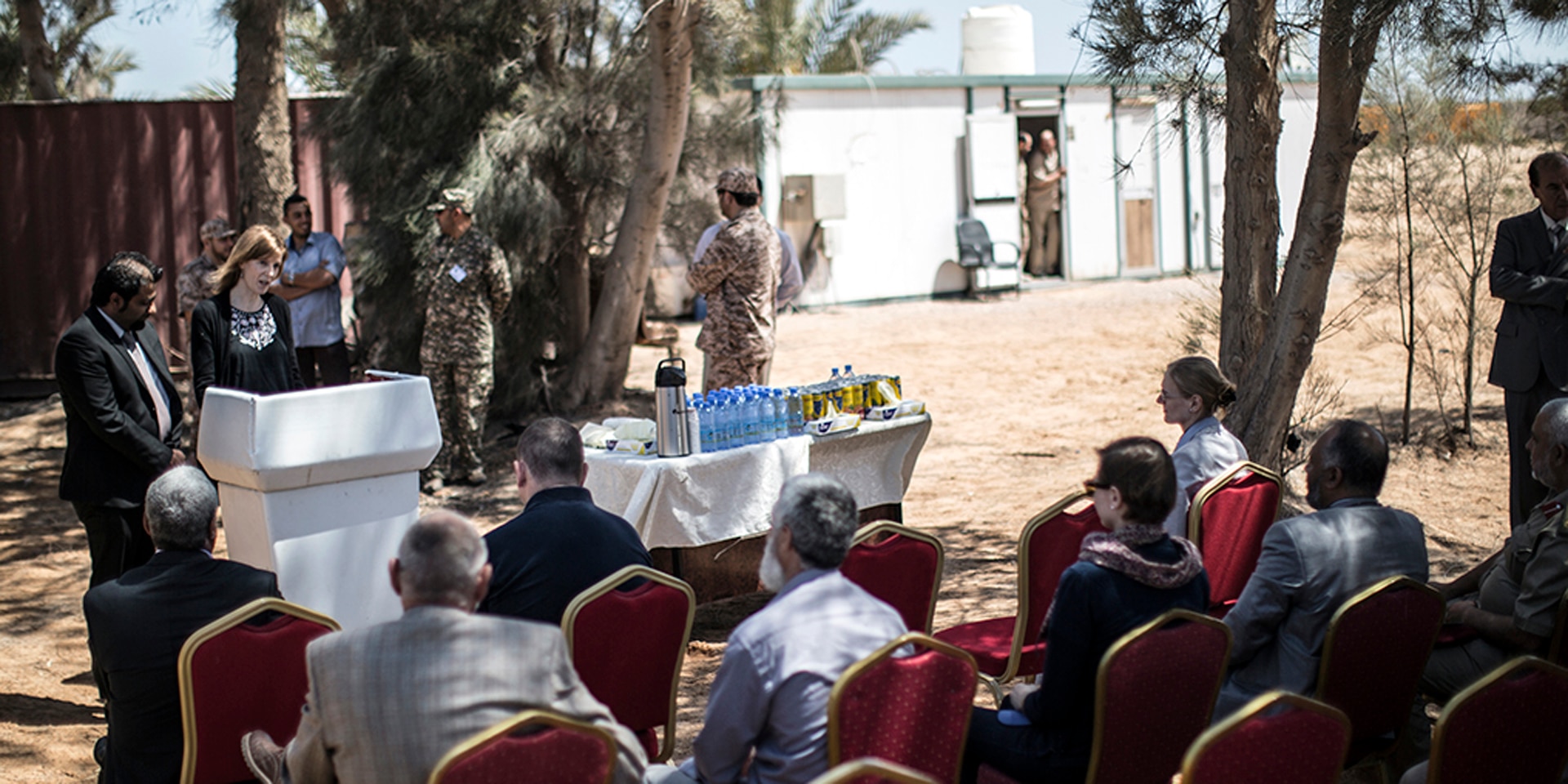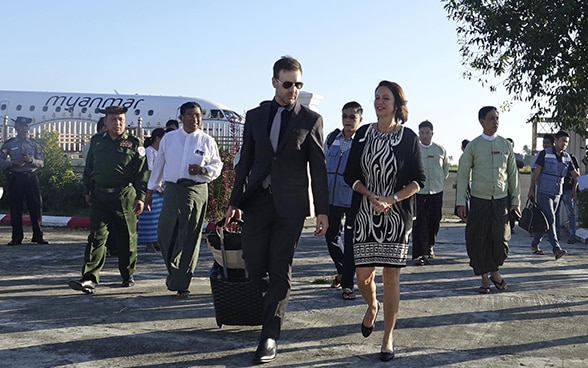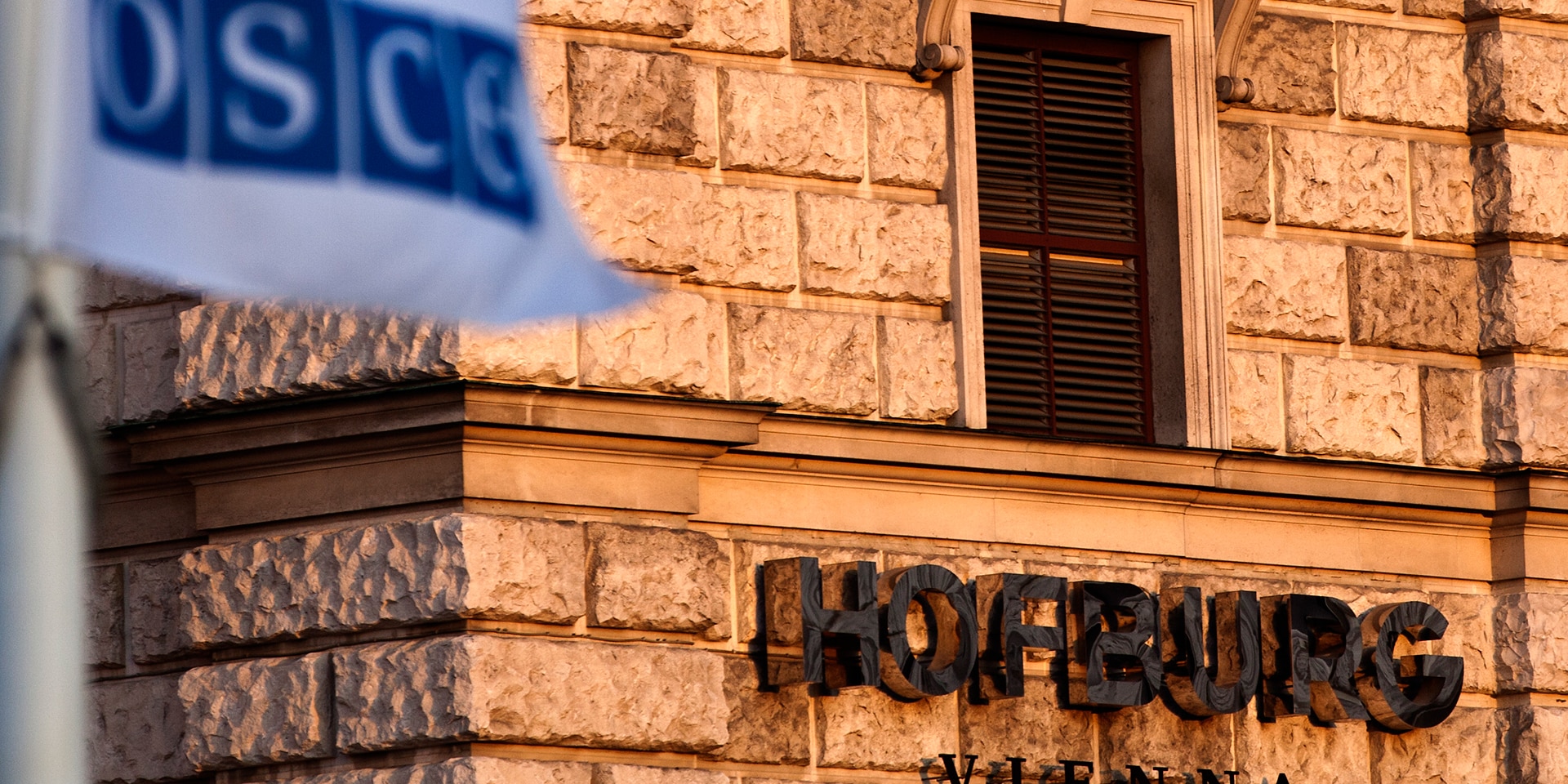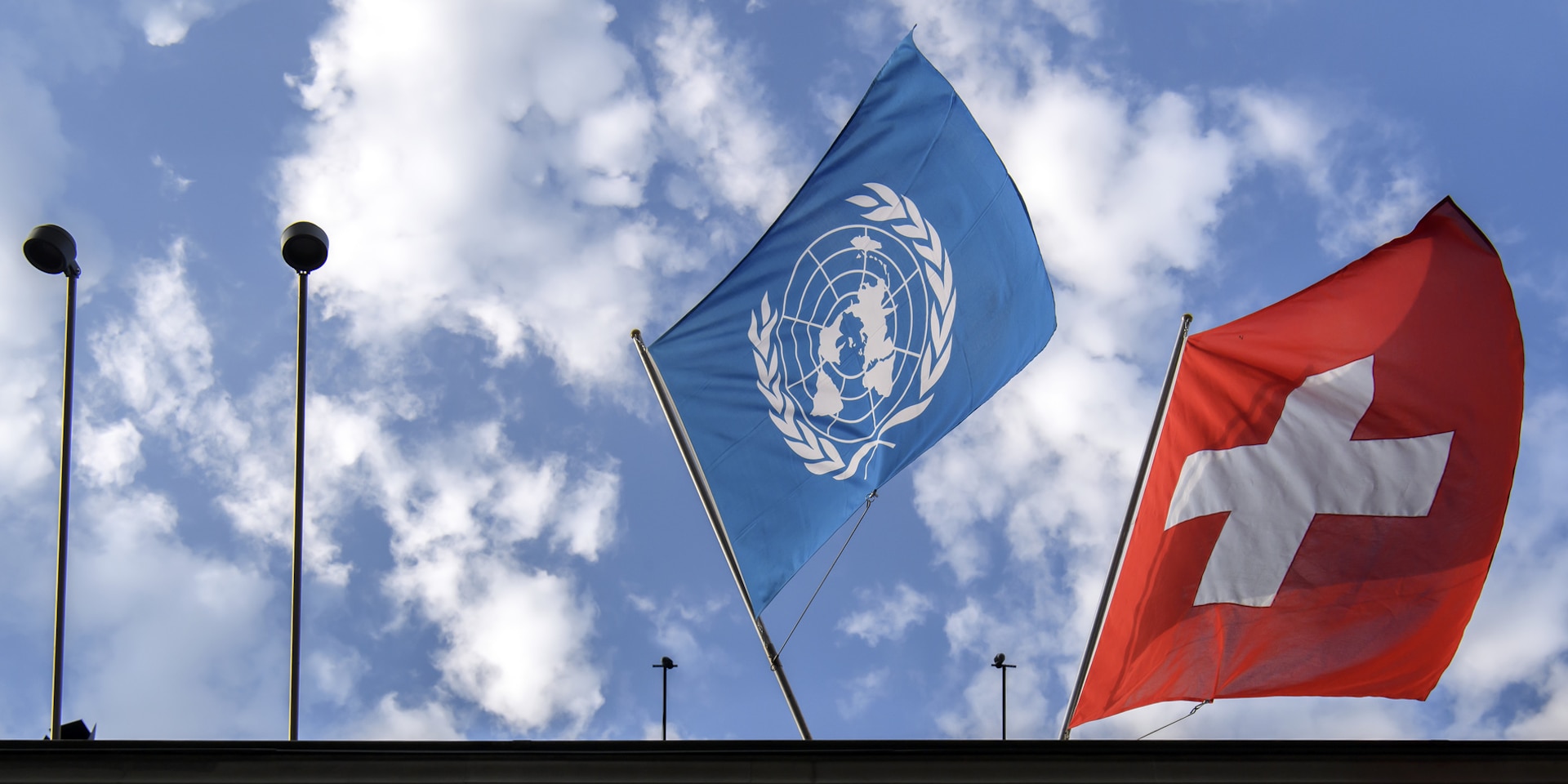More on the topic by Anne-Lise Favre Pilet
Geneva is endowed with numerous qualities that make it the ideal place to facilitate dialogue between conflicting parties: its geographic location, at the heart of Europe, and lying midway between east and west; its long-standing humanitarian tradition, which began with the International Committee of the Red Cross (ICRC); and its human scale, with an airport located only 15 minutes from the Palais des Nations. Switzerland's neutrality also ensures its impartiality. But what exactly does hosting negotiations rounds entail? "Switzerland offers services ranging from mediation to logistical support, depending on the needs of the parties to the conflict. The team that organises the meetings is small, flexible and fast, allowing us to host negotiations even at short notice," explains Anne-Lise Favre Pilet, who deals in particular with security considerations in Geneva.
Security is a key factor in these meetings, and there are many aspects to coordinate. "Ensuring the safety of heads of state, ministers and other dignitaries, who between them carry out an average of 4,700 annual visits to Geneva, is a considerable undertaking for the public security forces. The cantonal police forces, federal security services and sometimes even the army work together to ensure the protection of the delegations, in coordination with foreign security services and those of the United Nations," she adds. This is where the Security and General Affairs section of the FDFA's mission in Geneva comes in. "Our role is to ensure the flow of information as well as efficient coordination between the Swiss forces and their foreign counterparts, smooth out any diplomatic issues, facilitate the delegations' arrival in Geneva and, at times, enable special permits to be issued, for example in the event of sanctions preventing the movement of a delegate," explains Favre Pilet.
Ms Favre Pilet was involved in many of the negotiation rounds held in Switzerland (in Geneva, Montreux and Lausanne) leading to the Iran nuclear agreement. The seven delegations (Iran, the United States, Russia, China, France, Germany and the European Union) were often headed by foreign ministers. "It was an extraordinary experience for us, lasting many years. There is something inherently magical about every negotiation: having parties in conflict sit down at the same table to talk is already a success in itself. Sometimes, discussions bring about important steps forward, such as a truce, the formation of a transitional government, the opening of humanitarian corridors or the exchange of prisoners – steps which move away from war and towards peace."

